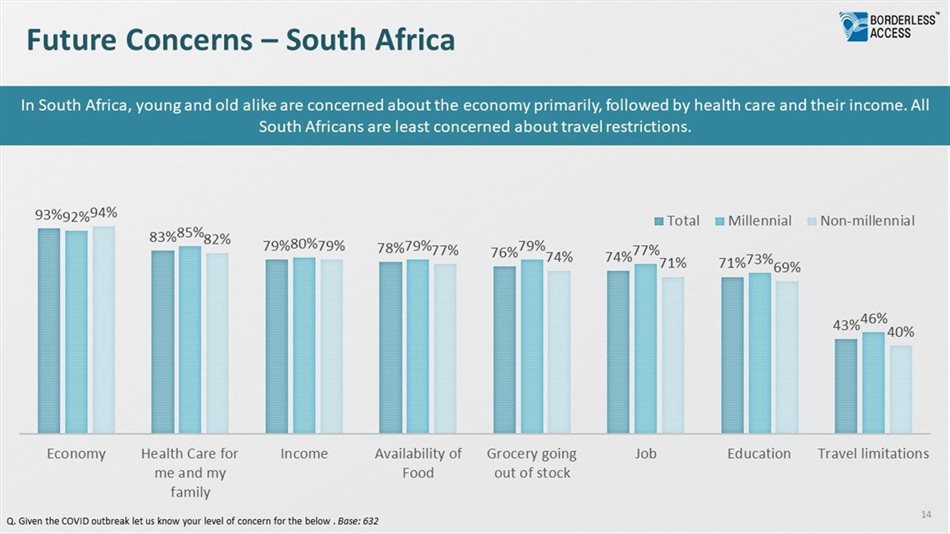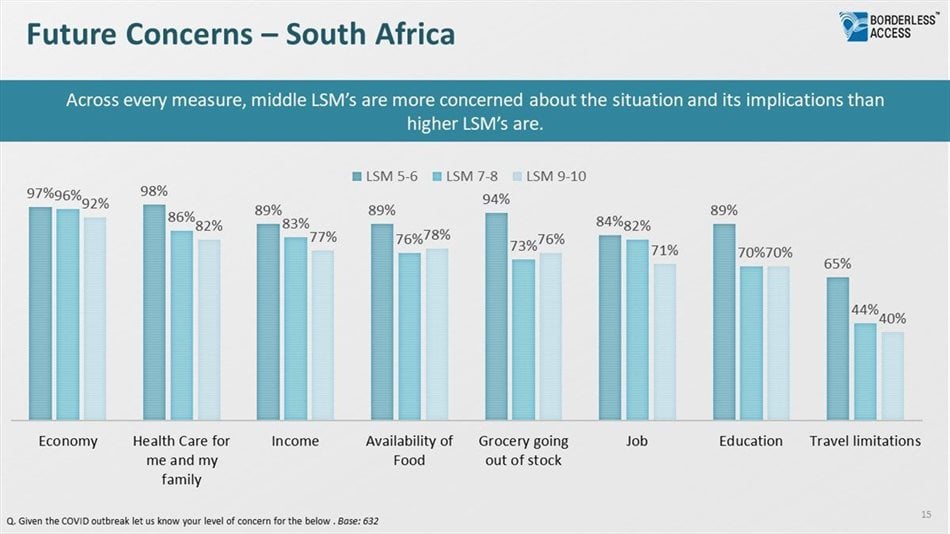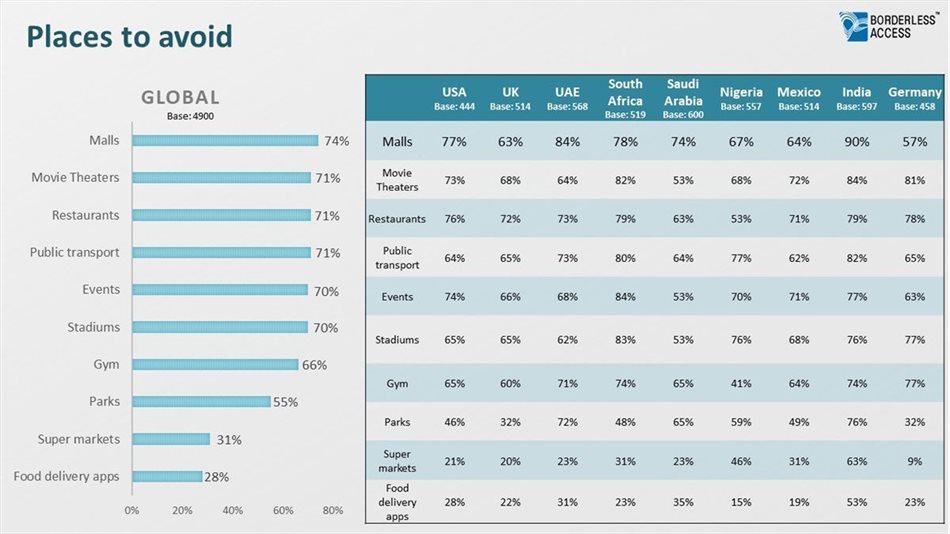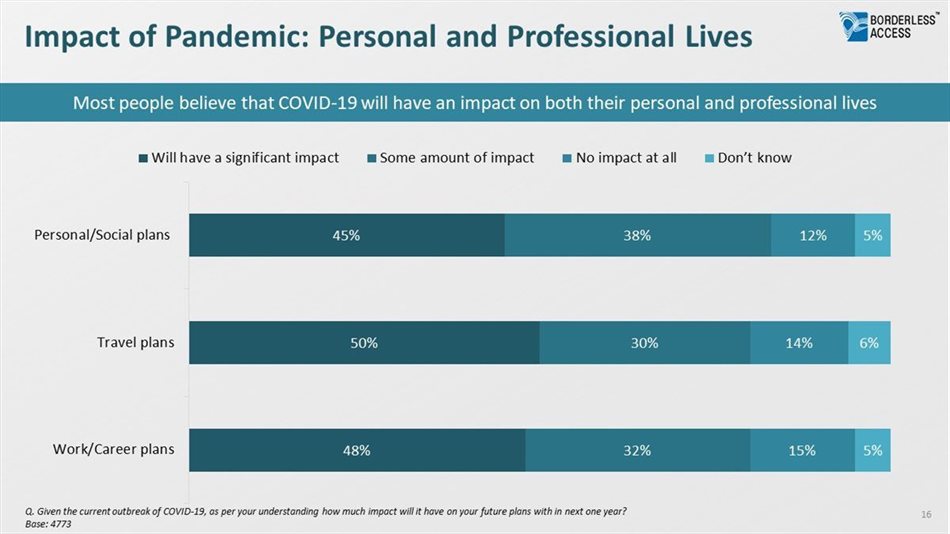
As the extended national lockdown continues, South Africans’ greatest Covid-19-related concern is the economy. This is even more top-of-mind for most citizens than concern over their family’s healthcare needs, which features as their second most pressing concern.
Even before Covid-19 entered the country, only 30% of South Africans had an optimistic view of the country’s economy improving within the next year. Adding that the impact of a five-week lockdown plus the double whammy of Moody’s downgrading the country to junk status – and it is not surprising that concerns rise even higher.
Income and availability of food are also pressing issues for most South Africans as a result of the current health crisis. Their least pressing worry is the travel limitations that the virus is imposing.
Young and old share the same concerns alike, with older consumers finding the economy more of worry while millennials are more concerned about their own family’s personal health.

Lower to middle LSM consumers are generally more concerned about the virus and its secondary implications on their lives than are higher LSM consumers. Presumably due to having fewer options, these consumers are more worried about their own incomes, education options and the state of the economy, while higher LSM consumers seem slightly less concerned about these aspects.
High LSM consumers are more concerned than most about the availability of food and out of stocks. Being used to a high level of grocery accessibility, many of these consumers have not previously encountered food shortages before.

Of course currently, during the lockdown, consumers are not going anywhere other than their own living rooms, but in the two weeks preceding lockdown, the government and media’s communication was highly effective in persuading consumers to avoid highly populated areas. In those two weeks, South Africans were already avoiding restaurants, public transport, events, stadiums and gyms more than consumers in some other countries.
The strong local outdoor lifestyle meant that consumers did not stay away from parks as much as occurred in other countries. This was also enforced by messages on social media that suggested that parks were one of the ‘safer’ ways to engage with others in those pre-lockdown weeks.

The efficient response of our government has set the tone for South Africans’ dedicated compliance to the lockdown regulations. Worry over the situation has also contributed towards this.
South Africans are not alone in their concerns. At a global level, consumers are united in the belief that the pandemic will negatively impact their professional, personal and travel plans, with less than 12% globally believing it will have no impact at all on their personal lives.

Borderless Access gathered the information in this article via an online survey of over 4,500 people over nine countries. The survey covered panellists from USA, Mexico, UK, Germany, South Africa, Nigeria, India, Saudi Arabia and UAE and was conducted from 20-29 March 2020 as most of those countries were entering into states of national lockdown.
Our next piece will focus on the expectations that consumers have of their brands during and post Covid-19. Here we’ll share what brands can do to provide support and stability for consumers in this uncertain world.
Borderless Access has been perfecting the practice of digital online research for many years. We have invested decades in transitioning clients from traditional to online methodologies. At times like this, the knee-jerk reaction is to move to online for the wrong reasons. We believe for many strong reasons that online is the future of research and can help you to transition to digital in a proactive rather than reactive manner. In this way, Borderless Access can help you to keep tracking your business insights, no matter the external global factors.
Please contact us to find out more or to sign up to receive our next article.
© 2025 Borderless Access Pvt Ltd. All Rights Reserved.